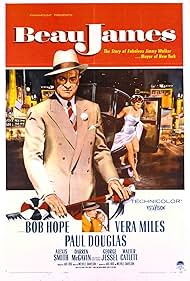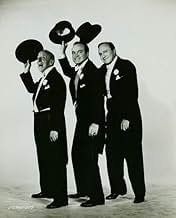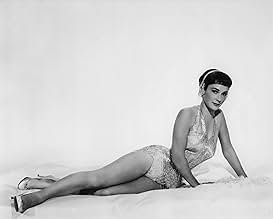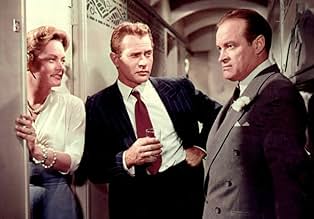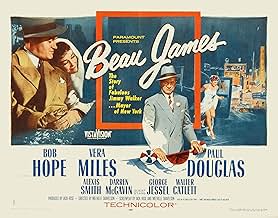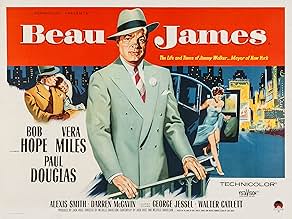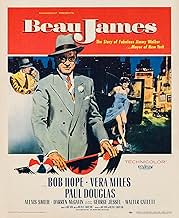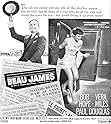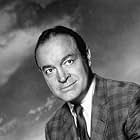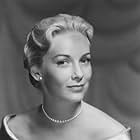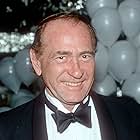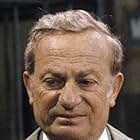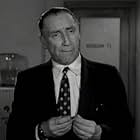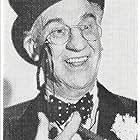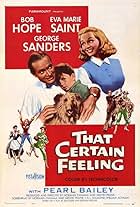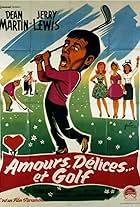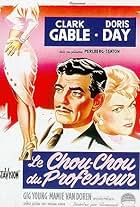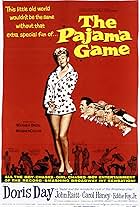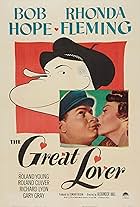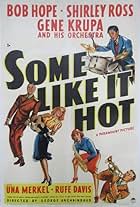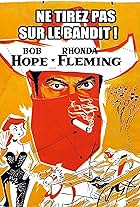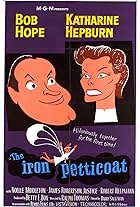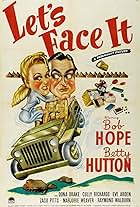Ajouter une intrigue dans votre langueBiopic of the political career of Jimmy Walker, flamboyant and somewhat corrupt Mayor of New York City from 1926-1932.Biopic of the political career of Jimmy Walker, flamboyant and somewhat corrupt Mayor of New York City from 1926-1932.Biopic of the political career of Jimmy Walker, flamboyant and somewhat corrupt Mayor of New York City from 1926-1932.
Eric Alden
- Reporter
- (non crédité)
Babette Bain
- Puerto Rican Child
- (non crédité)
Russ Bender
- Reporter
- (non crédité)
Jack Benny
- Jack Benny
- (non crédité)
John Benson
- Photographer
- (non crédité)
Histoire
Le saviez-vous
- GaffesMayor Walker is in a parade near movie's end. In the background is a 1955 or 1956 Cadillac.
- Citations
Mayor James J. 'Jimmy' Walker: Goodbye... but remember this: the voters always get what they deserve. I wasn't the only chump in this city. It took a lot of you to elect me.
- ConnexionsFollows La glorieuse parade (1942)
Commentaire à la une
Based on the charmingly cleaned up biography of a minor but colorful figure in New York history, sometime songwriter/Mayor James J. ("Gentleman Jimmy") Walker, this unjustly neglected Paramount film was a healthy success in its day but has not (as of this writing) been made available on DVD despite an outstanding cast and ties to truly remarkable figures in entertainment and history. One of Bob Hope's warmest, most thoughtful performances, it should be rescued from the occasional "fool screen" broadcast and made available in a good VistaVision release reflecting the original.
The no less fictionalized musical biography of Walker's successor as Mayor of New York, Fiorello H. LaGuardia (the sadly unfilmed FIORELLO), won a Pulitzer Prize and tied with THE SOUND OF MUSIC for the Tony as Best Musical of 1959, but Fowler's biography of Walker with Hope in the lead (looking nothing like Walker, but beautifully capturing Fowler's idea of Walker's character) was as good as it got for Gentleman Jimmy - the less well cast 1969 musical (JIMMY, inflicted on Broadway by movie mogul Jack L. Warner) suggested by the same book but with far less skilled hands writing (BEAU JAMES' director, Melville Shavelson was one of the writers) died a painful death in just over two months (October 23, 1969-January 3, 1970, at the Winter Garden Theatre after a tryout at Philadelphia's Forrest Theatre; a long out-of-print Broadway Cast Album of the enjoyable but uneven score on RCA LSO 1162 is all that survives.) In the movie, the glamorous Alexis Smith (Tony Award, Best Actress in a Musical for 1971's FOLLIES) furthered her reputation as Hollywood ice princess as Walker's unappreciated but sympathetic wife, Allie, and had to work hard to allow audiences to believe that Bob Hope's finely layered but (on screen anyway) naive Walker would leave *her* for Vera Miles higher billed chorus girl, Betty Compton.
The film does make New York at the end of the "Roaring Twenties" almost a co-equal character in the piece, and appearances of several real life characters from the era (Jimmy Durante, Jack Benny and others) add to the impression beautifully - as does the deft narration from Fowler's book appropriately read by Walter Winchell.
It isn't great history or even great Hollywood, but it is a very warm, enjoyable film well worth a look - and a great example of how "bad" casting (Hope's lack of *physical* resemblance to Walker) can be brilliant if it gets the *psychology* right. When they tried to musicalize the idea a decade later, the production was probably dead the moment they cast the skinny impressionist/actor Frank Gorshin (who actually did bear a passing resemblance to Walker) in the Hope role. All the qualities Gene Fowler infused in his book (to MAKE the reader and later, viewer of the movie, feel "warm and forgiving all day long") disappeared. The movie understood this - and you will.
The no less fictionalized musical biography of Walker's successor as Mayor of New York, Fiorello H. LaGuardia (the sadly unfilmed FIORELLO), won a Pulitzer Prize and tied with THE SOUND OF MUSIC for the Tony as Best Musical of 1959, but Fowler's biography of Walker with Hope in the lead (looking nothing like Walker, but beautifully capturing Fowler's idea of Walker's character) was as good as it got for Gentleman Jimmy - the less well cast 1969 musical (JIMMY, inflicted on Broadway by movie mogul Jack L. Warner) suggested by the same book but with far less skilled hands writing (BEAU JAMES' director, Melville Shavelson was one of the writers) died a painful death in just over two months (October 23, 1969-January 3, 1970, at the Winter Garden Theatre after a tryout at Philadelphia's Forrest Theatre; a long out-of-print Broadway Cast Album of the enjoyable but uneven score on RCA LSO 1162 is all that survives.) In the movie, the glamorous Alexis Smith (Tony Award, Best Actress in a Musical for 1971's FOLLIES) furthered her reputation as Hollywood ice princess as Walker's unappreciated but sympathetic wife, Allie, and had to work hard to allow audiences to believe that Bob Hope's finely layered but (on screen anyway) naive Walker would leave *her* for Vera Miles higher billed chorus girl, Betty Compton.
The film does make New York at the end of the "Roaring Twenties" almost a co-equal character in the piece, and appearances of several real life characters from the era (Jimmy Durante, Jack Benny and others) add to the impression beautifully - as does the deft narration from Fowler's book appropriately read by Walter Winchell.
It isn't great history or even great Hollywood, but it is a very warm, enjoyable film well worth a look - and a great example of how "bad" casting (Hope's lack of *physical* resemblance to Walker) can be brilliant if it gets the *psychology* right. When they tried to musicalize the idea a decade later, the production was probably dead the moment they cast the skinny impressionist/actor Frank Gorshin (who actually did bear a passing resemblance to Walker) in the Hope role. All the qualities Gene Fowler infused in his book (to MAKE the reader and later, viewer of the movie, feel "warm and forgiving all day long") disappeared. The movie understood this - and you will.
Meilleurs choix
Connectez-vous pour évaluer et suivre la liste de favoris afin de recevoir des recommandations personnalisées
- How long is Beau James?Alimenté par Alexa
Détails
- Date de sortie
- Pays d’origine
- Langues
- Aussi connu sous le nom de
- Beau James
- Lieux de tournage
- Sociétés de production
- Voir plus de crédits d'entreprise sur IMDbPro
Box-office
- Montant brut aux États-Unis et au Canada
- 1 750 000 $US
- Durée1 heure 45 minutes
- Rapport de forme
- 1.85 : 1
Contribuer à cette page
Suggérer une modification ou ajouter du contenu manquant

Lacune principale
By what name was L'ingrate cité (1957) officially released in India in English?
Répondre